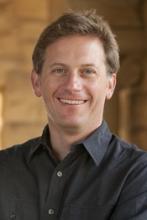Education and the Culture Wars12
Aug 26, 2015
The “Culture Wars”. Not just Liberal versus Conservative and Democrat versus Republican; but Secular versus Religious; Evolutionist versus Creationist; Feminist versus Traditionalist; MSNBC versus Fox. Jon Stewart versus Bill O’Reilly --- or in my case, my liberal self versus my much-loved, intelligent and articulate libertarian son.
In the last primary season we saw how these basic conflicts over cultural issues translate into battles over education. Some candidates portrayed American schools as virtual dens of brain-washing --- liberal teachers and professors pushing the gay-friendly, feminist-friendly, socialist-friendly agenda of the left, and so having undue influence over another generation of voters.
